My friend, Sara Shookman and I met a few years back in 2017, when she was an NBC news anchor and I owned my wardrobe styling business, The Style Foundry. Together we'd create style segments to help the women here in Cleveland feel confident in their clothes.
Fast forward 7 years later and now we're both mompreneurs who have expanded both into new businesses of our own and families too.
I was so grateful to sit down and reconnect with Sara in our studio where we not only reminisced on life and our TV segments before kids but also dove into her life update- launching StoryGlow Studio too.
Here's what she had to say:
Sara Shookman's Shift From the Newsroom to Business Owner
The last time you and I were on set together you were giving me baby advice and I was really nervous about motherhood. Then the pandemic happened…. As I texted you recently, when you say that idea of: your kids needing a hundred percent of you, I feel that in my soul.
That is this age and stage that we're in right now, I guess. They're so fun, but any good intention I have about doing something after bedtime, nothing, nothing happens. I am practically rolling myself down the stairs and into my bed at 8:15.
So my life looks like fitting my new business into 3 days a week when I have childcare (Tuesday, Wednesday and Thursday) and the rest of my days are spent with my two littles, Isla (4) and Luca (2). A big adjustment from my previous career.
During the pandemic, I saw my husband's job go completely remote- he had that flexibility to have all this time with our babies. He was around and I certainly got used to that aspect. There were days where I was like: wait, why do I have to go to work? Why am I home at midnight or nine o'clock and always missing bedtime?
The older Isla got, the more it was clear what I was missing and what she was missing too. And that was hard because I really cared about my job and my life as a professional.
But once I became a mom, I could start to see: maybe something has to give and maybe it's that I become a different professional than I imagined I’d be.
Launching StoryGlow Studio
It was a slow evolution.
I think of how many awesome stories that were pitched to me in my inbox, that I thought: It's a good story and we're never going to do it because of resources, time, timeliness.
Sometimes a pitch was a good story lost in a bad pitch, where it was like, I could tweak that and present that a little bit differently. But I think that a lot of it was just that we were stuck trying to chase after the news of the day or the story of the day. And that didn't leave a lot of room to tackle some of these, complicated topics or heartwarming topics or, not necessarily the stuff that people click on on a local news site.
So instead of people feeling like they're missing out because the local news didn't get to tell their story, the cool thing now is they can do it themselves (or with help,) right?
Your niche, your loyal followers, the people you actually want to reach- they're closer than you think. And if you're on the six o'clock news tonight. Yes, somebody will notice, for sure. But will it be that warm lead that you already have? I don't know about that. That's really hard to say.
You taking the time to cultivate your own story, to work on your own content and to get that out there on your own- I think it has a much better chance of reaching the person you want it to.
It's a hard place to be in from a journalism perspective because that difficult job of local journalist is to try to connect to two million people here in Northeast Ohio in a way that resonates with all of them. I don't envy that job anymore.
That’s why I founded StoryGlow Studio. StoryGlow is for organizations on a mission who, the world needs to know their story, but a lot of times, people don't. And the organization doesn't know where to start. To get to that place where they’re trying, as a nonprofit, a small business trade association, to reach that point of resonance with the people that they are meant for- is frustrating.
Some of the values that I hope that people saw in me as a journalist, as someone that they came to know, trust, and invite into their homes on TV. That's just who I am. Those are things that I've just tried to say I'm still living that out even though it's not on TV in quite the same way and quite the same stage that I had before.
So now I focus mostly on non-profits because of their stories and because I did so much work with them as a journalist. I worked a lot of rubber chicken dinners and walks and things like and I’d be handed a script and say: okay, but what's the goal here? What are you guys after? Trying to understand a little bit more than just that very surface level of what this event was about or what this organization was about.
Typically they're doing incredible work with the smallest staff where everyone's wearing 12 hats. And so they're like: That sounds great. Sara. We'd love to focus on our storytelling. If only we had the time.
So I think of myself as sort of a storytelling consultant where we start at square one of:
First, let's reach clarity.
Let's figure out who you're trying to talk to, what voice you're talking in, what message you need to be telling, what's confusing people about the way you're presenting yourself now.
Then we go into creation mode and we work on all sorts of content.
We create a strategy around that content and then also the creation.
I personally love video storytelling, obviously as a television journalist. I think it's the most emotional medium that's out there.
Particularly for a lot of nonprofits, I focus on trying to get their message, voice, and phrasing to align across social media and reflect in the video products they create, the language on their website, in their nurture campaigns that are going out to donors, in their event chronology.
We are really coming in and creating a campaign for the specific need of the client while also being very wraparound, hopefully leaving them with a library of assets that they can draw on again and again. (Along with a recognition of their brand voice, their brand’s story and how to share it.)
I hope to codify this a little bit. So that it’s more simple to take the time, get the clarity and stories in place for you, which makes other marketing decisions down the line easier.
Storytelling with your Brand Voice in mind
I think we've gotten to a point in 2024 where everybody recognizes the value of a personal brand. We think of that as your color scheme or your logo or things like, you know, Coca Cola and polar bears. But the part that we haven't caught up with yet, that I see is just as powerful if not more, is your brand voice.
It's the story. It is an exercise in memorization.
People are being bombarded with messages all day long, especially if they're on social media. It takes as many as eight times for you to see something for it to actually start to sink in. For your brain to start to metabolize it and say: What is this information? Is it right for me?
When you get down to the science of it- we're just trying to survive, right? And as mom’s we couldn’t understand that more- we're like: all I'm trying to do today is drink some water, get some sleep, get some food. I mean, it really is the basics. Every decision our brain makes is about that. I don't need this thing if it's not going to help me survive and thrive.
So it's tapping into that a little bit, like what is it? What is the problem that you solve and how does that make human life better, easier, etc?
And then inviting people to be a part of that story because people are going to do what they're told to do. And I think sometimes coming from my previous career, I still take that journalistic mindset in everything I do.
My first question for almost every client is tell me your origin story:
Where did this come from?
There's a reason you're doing what you're doing, even if you just sort of fell into it, there's something that motivates you about it.
There's a reason that you wake up every day and you believe in it.
And I often hear from people something like: well, if you would just see it, or if you could just experience this piece of what it is I do- that's the part.
And that is the part, right? If you can find a way to share that without getting someone physically across your threshold, so that they understand what you're about, that's how you can grow that loyal following that cares about what you do.
We're not trying to sell to people, we're literally trying to help them. And if you are offering a quality service or product, someone needs it. They do. You are helping them. You are going to make their life easier. You are going to help them survive and thrive.
So explain to them how you do that because otherwise they might just move on past along with the other 5,000 messages that bombarded them today.
That's what I've been trying to do is get to that narrow place where we're telling a story in a way that is digestible, that is understandable. And I think a lot of my journalistic skills come into that.
I take a different approach to it. I'm used to being a one day subject matter expert. My partner Russ Mitchell used to say: “As journalists, we need to have a knowledge base that is a river wide and an inch deep.”
And I think a lot of times we have that curse of knowledge where you as an entrepreneur, someone who is so close to the work you're doing, could talk about it for 8 hours straight, right? But if you talk really in depth to your people- you have completely lost them.
So, auditing communications and getting them to a place where they are hitting that sweet spot where we're connecting with people and there's always more for the people that are looking for it. That's what I'm trying to do now.
Cleveland's Spirit of Support, Collaboration, & Networking
I think Northeast Ohio is such a welcoming place. I was in such a lucky position to have met so many people along my professional career here.
I try to do a lot of zoom coffee meetups, lunch dates, things like that. A lot of times I am bold enough to just reach out to people I admire and say like, Hey, would you ever be willing to get coffee with me in Cleveland? People say yes. We're in a place like that.
I don't think that women should be giving away their value for free in any way, but I do think the women here want to encourage others. I know I want to encourage someone else too.
The maker community here is really strong and there are a lot of women leadership communities that are really strong too, like Athena Akron.
I also have found these reciprocal relationships are really wonderful. I know you had Charity D'Amato on the podcast. She's awesome and such a talented designer. She helped me create Story Glow's branding and everything. It was so fun to work with her and her team and now, she has sent me emails of people that are like: Hey, I need help with storytelling. And I have sent her people who say: Hey, I need help with design.
So I think finding your tribe (as loose as we can use that word here) is like manifesting anything else. If you put it out in the universe, you will find people that will connect you to that next thing.
You're always networking without consciously thinking about it. And I've been really lucky thus far that that is how Storyglow has happened and grown.
With storytelling, the barrier to entry is so low. You don't even need to have a website to get started doing what you wish that you were doing.
Navigating Perfectionism in Entrepreneurship + Motherhood
If you can explore something that you're interested in, that you could be adding value to the world by doing then you can speak it into existence if you take it seriously enough, you know?
Connect with Sara
LinkedIn: Sara Shookman & StoryGlow Studio
Instagram: @sarashookman


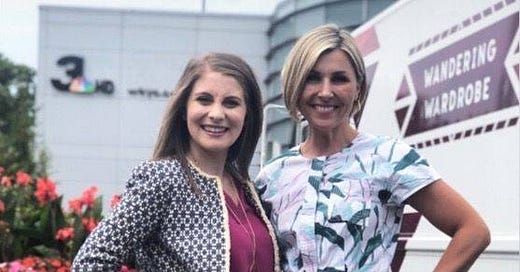




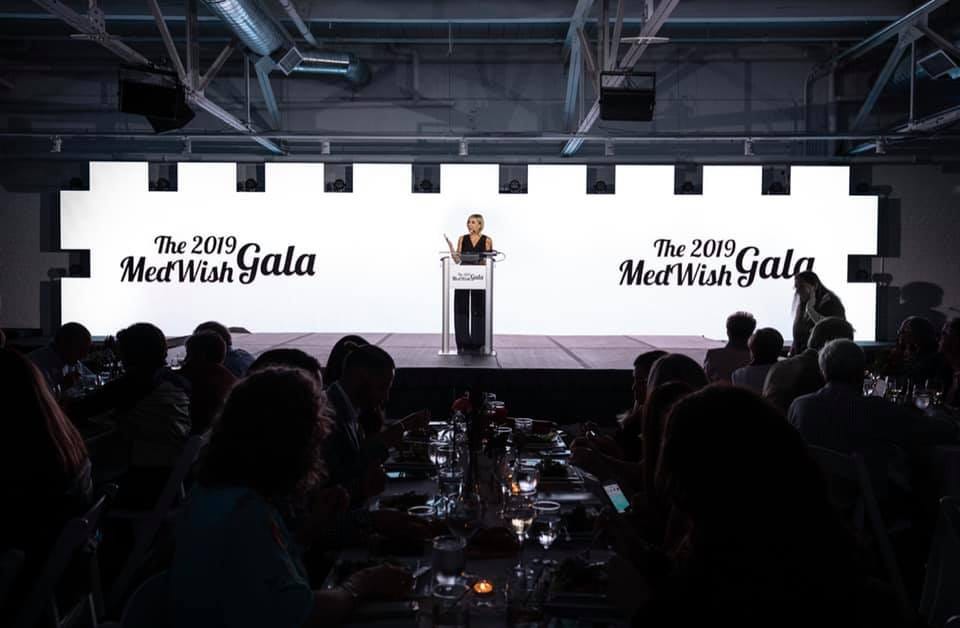
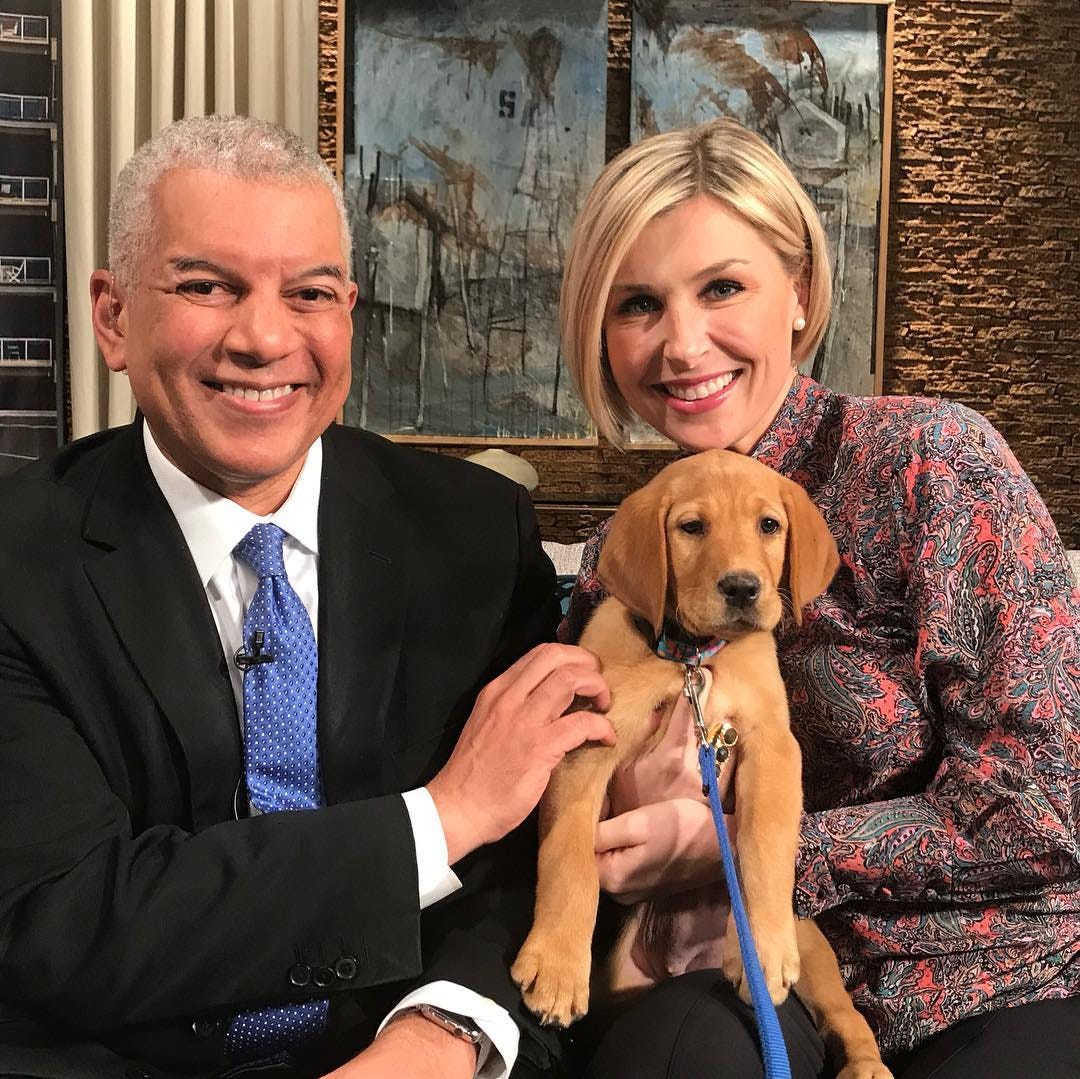
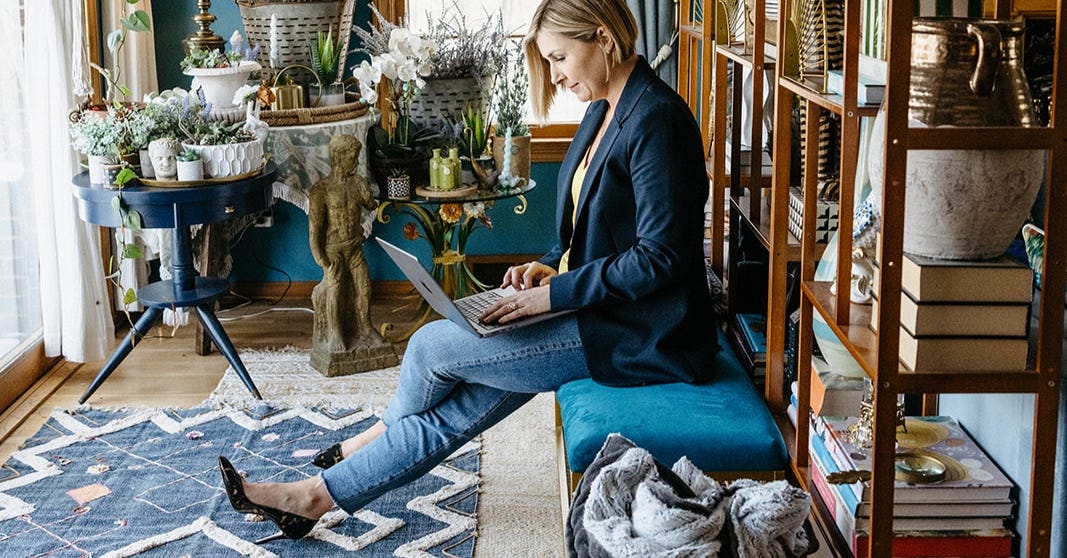
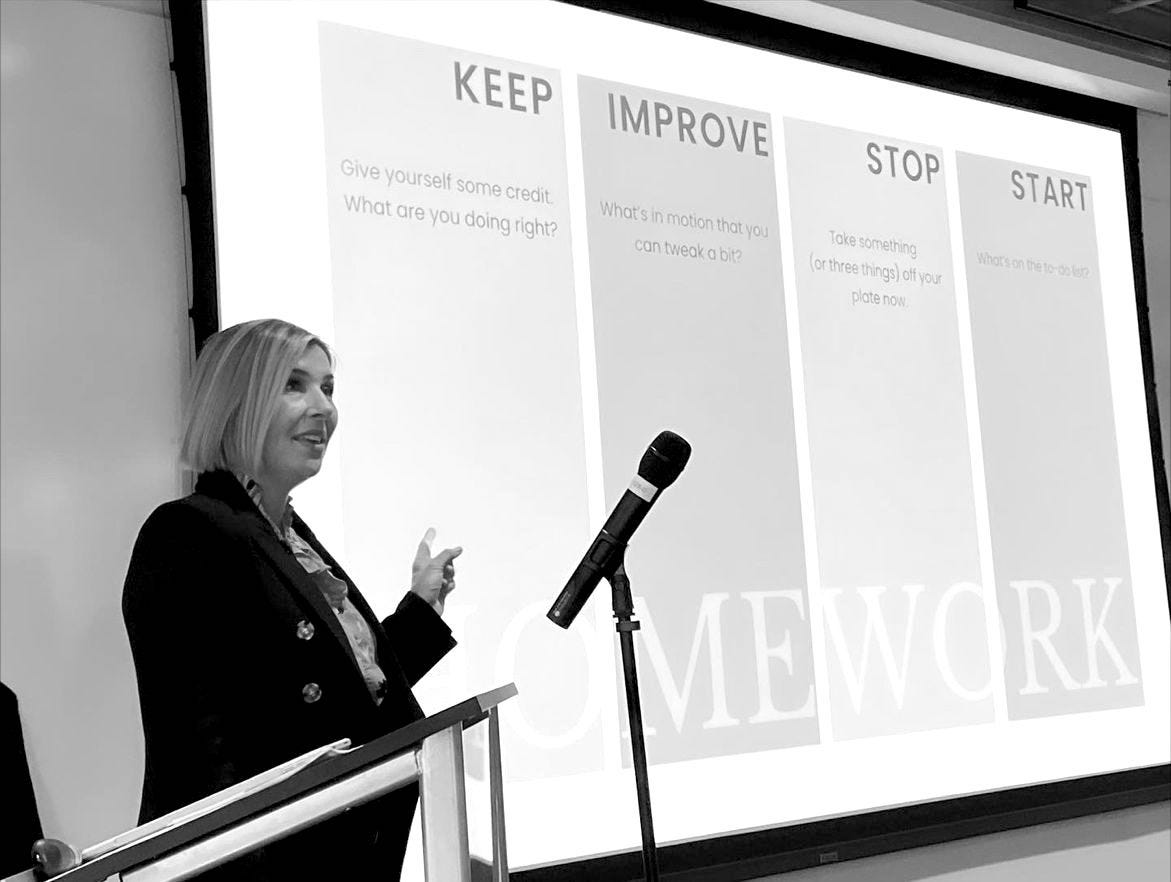
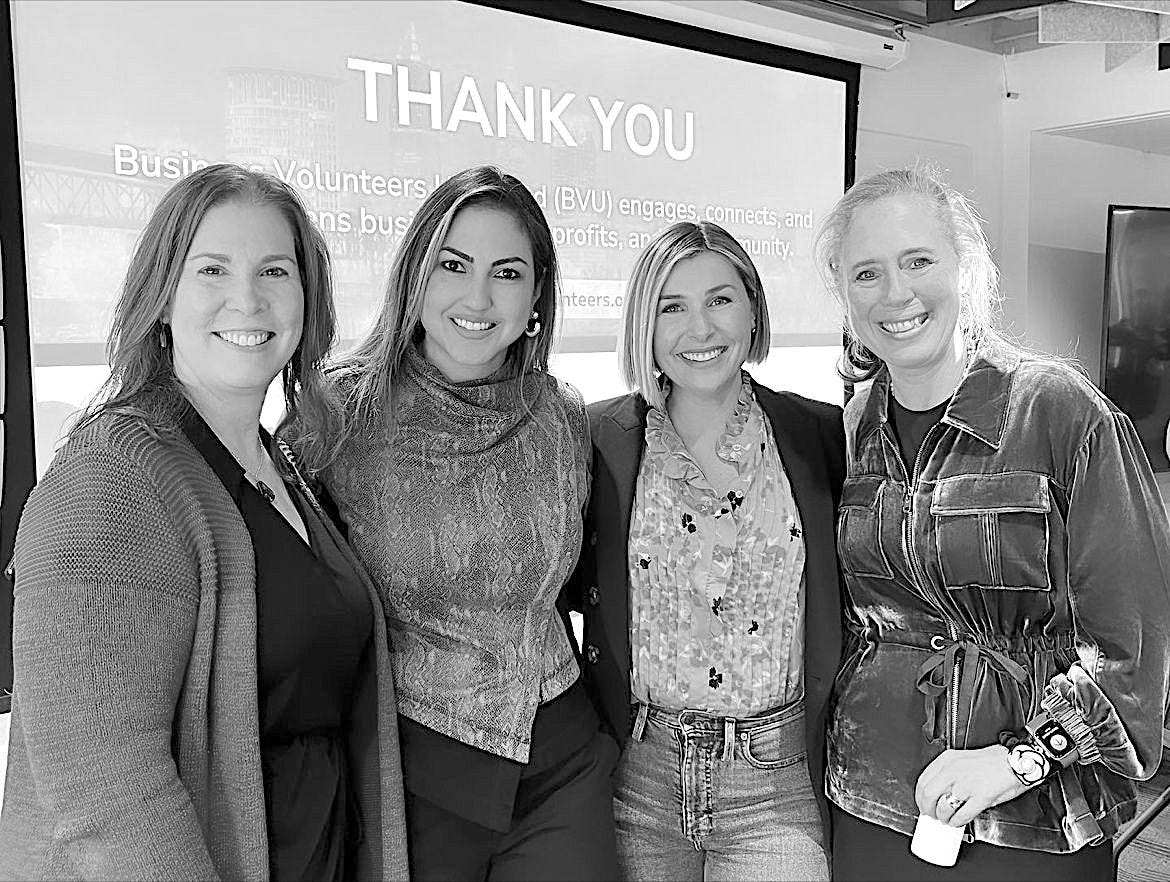
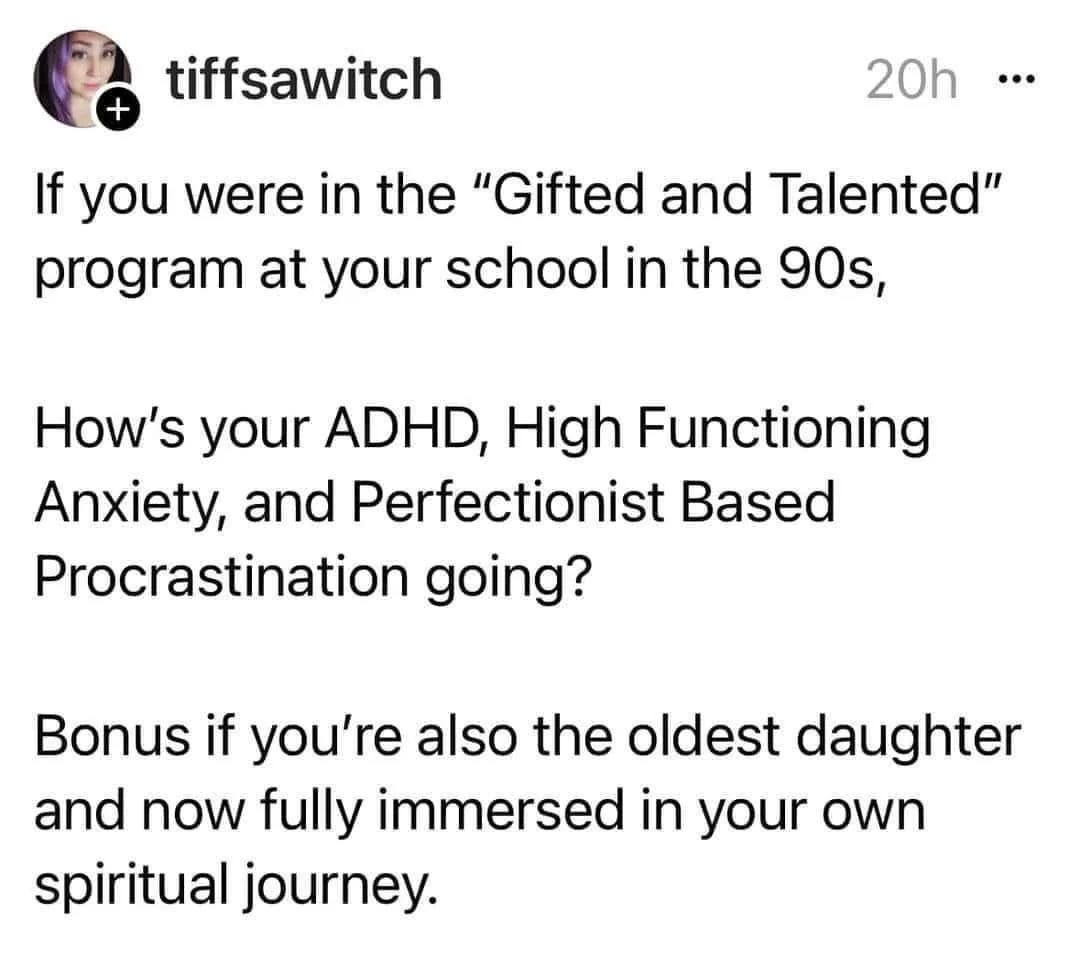





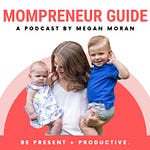
Share this post